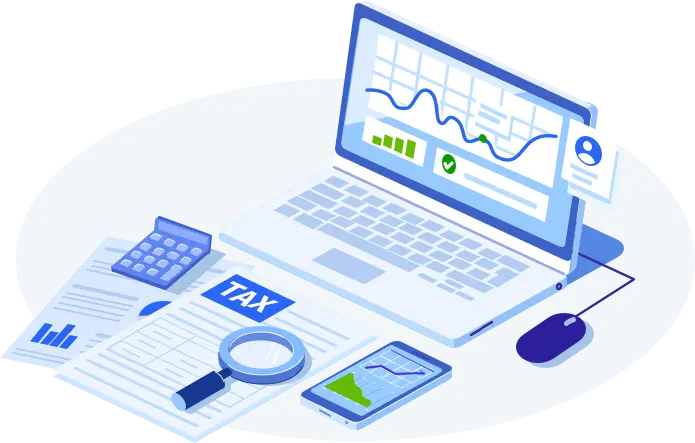How to Become a Tax Preparer
- Home
- How to Become a Tax Preparer
How to Become a Tax Preparer
Becoming a professional tax preparer is more accessible than you might think—and TaxLogicPros is here to guide you every step of the way. Whether you’re looking to start a new career or add tax preparation to your existing services, we make the path clear and achievable.

TaxLogicPros
How to become a professional tax preparer:
Interested in launching a profitable career as a tax preparer? At TaxLogicPros, we make it easy to get started with the guidance, tools, and software you need to succeed. Here’s a simple step-by-step breakdown of how to become a certified and effective tax professional.
-
1. Create Your PTIN
Anyone who prepares federal tax returns for compensation is required to have a Preparer Tax Identification Number (PTIN). There are no specific education requirements, and the process to obtain a PTIN is simple and quick. You can apply online or by submitting a physical application form.
-
2. Apply for an EFIN
To file tax returns electronically, you’ll need an Electronic Filing Identification Number (EFIN). The application involves providing personal details and, in most cases, submitting fingerprints. This process ensures security and compliance, and typically takes a few weeks for approval.
-
3. Register with Your State
Every state has its own requirements. Depending on your location, you may need to register or become licensed as a tax preparer. Make sure you understand your state’s regulations before offering services to clients.
-
4. Gain Experience in a Tax Office
Starting your journey in a tax preparation office can provide practical, hands-on experience. This is a great way to learn about tax laws, client interactions, and local regulations—especially if you're just beginning your career
-
5. Choose the Right Tax Software
Not all tax preparation software is created equal. Think about what you need:
Does it allow unlimited tax return filing?
Does it include bilingual support?
Can you access it from your desktop or the cloud?
Will it help you scale your business over time?
At TaxLogicPros, our tax software is designed for both beginners and experienced preparers. We offer easy-to-use tools, comprehensive support, and essential features that help you work smarter—not harder

Business Consulting for Tax Professionals
Considering a career in tax preparation? You’re in the right place.
Whether you’re starting fresh or looking to expand your financial services, becoming a tax preparer is a smart move with strong earning potential and flexibility.
Download our exclusive step-by-step guide to discover exactly what you need to launch and grow a successful tax preparation business—from registration and licensing to choosing the right software and gaining real-world experience.
Start your journey with confidence—TaxLogicPros is here to support you every step of the way.
Types
What are the different types of tax preparers?
Tax preparers can have different titles, depending on their level of education. Some need a license to practice, and some do not.
-
Electronic Return Originator (ERO)
An ERO is the individual who submits tax returns electronically to the IRS on behalf of clients. While no formal certification is required to become an ERO, you must obtain an Electronic Filing Identification Number (EFIN).
-
Annual Filing Season Program (AFSP) Participants
These preparers voluntarily complete 15–18 hours of continuing education annually and pass a final test to earn a Record of Completion from the IRS. AFSP participants are also listed in the IRS public database of tax preparers, enhancing their credibility.
-
Enrolled Agent (EA)
An Enrolled Agent is a federally licensed tax professional authorized to represent taxpayers before the IRS. Becoming an EA requires passing a comprehensive IRS exam and a background check. EAs must also meet continuing education requirements each year to maintain their status.
-
Certified Public Accountant (CPA)
Starting your journey in a tax preparation office can provide practical, hands-on experience. This is a great way to learn about tax laws, client interactions, and local regulations—especially if you're just beginning your career
